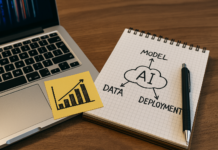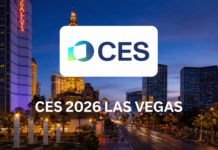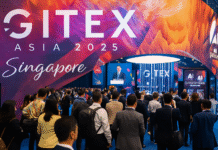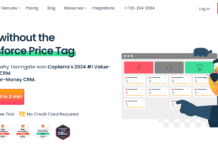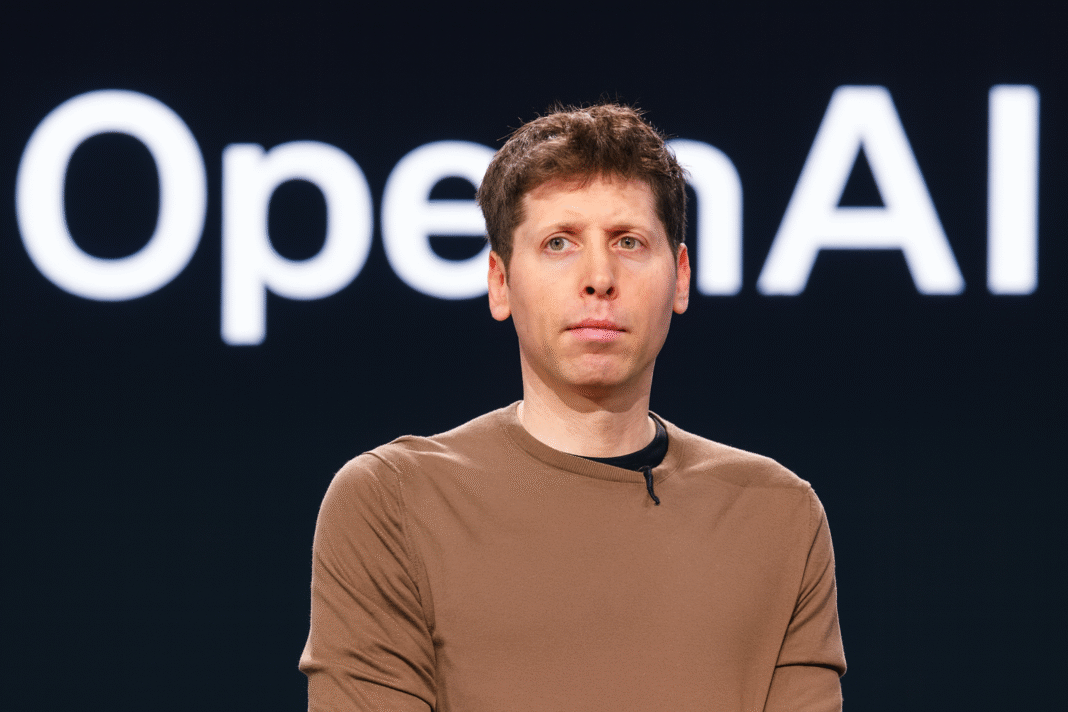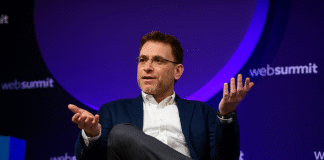Sam Altman: The Visionary Behind the AI Revolution and What’s Next for OpenAI
Introduction
Few figures in the technology world have influenced the trajectory of artificial intelligence as deeply as Sam Altman. As the CEO of OpenAI, Sam Altman stands at the center of one of the most transformative technological movements in human history. His career represents the evolution of a visionary who has combined technical understanding, leadership, and philosophical insight to shape the global AI landscape.
Born in 1985 in St. Louis, Missouri, Sam Altman developed an early fascination with technology and human behavior. Long before he became the face of OpenAI, he was already exploring how software could enhance human potential. Today, Sam Altman’s journey—from a young entrepreneur to a world-renowned AI leader—reflects both his belief in progress and his determination to ensure that artificial intelligence benefits everyone.
Early Life and Education
Sam Altman attended John Burroughs School, an elite private school known for its focus on intellectual curiosity. After high school, he joined Stanford University to study computer science. Like many of Silicon Valley’s most influential founders, he left Stanford early to pursue his first startup.
At 19, Sam Altman co-founded Loopt, a location-based social networking app that launched in 2005. The idea was revolutionary at the time: allowing users to share their real-time location with friends. Loopt gained early recognition from investors, but the market was not ready for that level of social transparency. In 2012, the company was acquired by Green Dot Corporation for $43 million.
Although Loopt did not reach global success, the experience gave Sam Altman valuable insights into user psychology, product-market fit, and startup management. It was his first lesson in how innovation requires both vision and timing.
Rise Through Y Combinator
After selling Loopt, Sam Altman transitioned from founder to investor. He joined Y Combinator (YC) in 2011 as a part-time partner. Two years later, he became president, succeeding Paul Graham, the co-founder of YC and one of the most respected voices in the startup world.
At Y Combinator, Sam Altman transformed the accelerator’s mission. He expanded its scope by launching YC Continuity, which allowed YC to invest in late-stage startups, and YC Research, which focused on long-term scientific and social projects. Under his leadership, Y Combinator backed legendary companies like Airbnb, Stripe, and DoorDash.
Sam Altman encouraged founders to pursue “important problems.” His belief was that great startups are not just about profit but about solving issues that matter to humanity. That philosophy would later define his approach to OpenAI.
Founding OpenAI
In 2015, Sam Altman co-founded OpenAI alongside Elon Musk, Greg Brockman, Ilya Sutskever, and several other leading researchers. Their shared vision was clear: to ensure that artificial general intelligence (AGI) benefits all of humanity. From the start, Sam Altman emphasized that AI should be developed responsibly, with transparency and global cooperation.
OpenAI began as a nonprofit research lab dedicated to open collaboration. Sam Altman and the team released research papers, open-source models, and innovative tools that quickly gained attention across the scientific community. Their goal was not only to advance technology but to shape the ethical conversation around artificial intelligence.
However, as research in machine learning grew more advanced and computationally expensive, Sam Altman recognized the need for a new structure that could sustain large-scale AI development.
Transition to a Capped-Profit Model
In 2019, under Sam Altman’s leadership, OpenAI restructured into a “capped-profit” company called OpenAI LP. This model allowed the organization to raise capital while limiting investor returns, ensuring that most of the benefits from AGI would still serve humanity.
The decision sparked debate in the tech world. Some believed OpenAI was abandoning its nonprofit roots, while others saw it as a necessary evolution. Sam Altman defended the move by arguing that building safe and advanced AI required billions of dollars in computing and engineering resources. His reasoning was that without sustainable funding, OpenAI’s mission could not succeed.
This transformation led to one of the most significant partnerships in modern technology: OpenAI’s alliance with Microsoft.
Partnership with Microsoft
In 2019, Microsoft invested $1 billion in OpenAI, marking the beginning of a collaboration that would accelerate global AI adoption. Under Sam Altman’s direction, this partnership gave OpenAI access to Microsoft’s Azure cloud infrastructure and allowed Microsoft to integrate OpenAI models into its products.
Sam Altman’s strategy was both visionary and pragmatic. He realized that democratizing AI required global distribution and trusted infrastructure. Microsoft, under Satya Nadella’s leadership, shared that vision, making the collaboration a natural fit.
By 2022, this partnership resulted in ChatGPT, the conversational AI that revolutionized how people interacted with machines. Within two months, ChatGPT had over 100 million users making it one of the fastest-growing products in tech history.
The ChatGPT Revolution
The launch of ChatGPT in November 2022 marked a defining moment in Sam Altman’s career. For millions of users, this was their first real interaction with generative AI. Sam Altman positioned ChatGPT as a tool for empowerment a way to enhance human creativity, productivity, and education.
Businesses began using ChatGPT for customer support, marketing, and automation. Students and researchers used it to brainstorm and learn faster. Sam Altman emphasized that the true value of AI was in collaboration between humans and machines, not replacement.
He often said that artificial intelligence should make people “more human,” not less. This vision turned Sam Altman into not just a CEO but a global advocate for responsible innovation.
For readers interested in learning about other visionary founders who transformed industries, visit Startupik’s Founders category.
The 2023 OpenAI Board Crisis
In November 2023, Sam Altman faced one of the most intense moments of his leadership when OpenAI’s board suddenly removed him as CEO. The announcement cited a “lack of transparency,” but no clear explanation followed. The decision sent shockwaves across the tech industry.
Within hours, nearly every OpenAI employee, major investor, and Microsoft executive expressed support for Sam Altman. More than 700 employees signed an open letter threatening to resign if he was not reinstated.
This public showdown revealed the tension between OpenAI’s nonprofit mission and its growing commercial success. After five days of global attention, Sam Altman was reinstated as CEO, and the board was reorganized.
The event strengthened his position as one of the most influential figures in technology. It also highlighted the loyalty and trust he had built within his organization.
Sam Altman’s Philosophy on AI and Humanity
Sam Altman’s leadership extends beyond business strategy. He consistently speaks about the ethical and social implications of artificial intelligence. He believes that AI is the most powerful technology ever created, capable of reshaping every industry and human experience.
However, Sam Altman also warns about its risks. He has called for global cooperation to prevent misuse of AI systems, comparing the need for regulation to nuclear safety protocols. His approach combines optimism with caution—a mindset that balances innovation with accountability.
Sam Altman supports the concept of universal basic income (UBI) as a way to distribute the economic benefits of automation. During his tenure at Y Combinator, he funded research to test UBI in the United States. His belief is that as AI increases productivity, wealth should be shared more equitably across society.
Personal Values and Leadership
Colleagues often describe Sam Altman as calm, deliberate, and deeply analytical. He believes in surrounding himself with small, focused teams capable of extraordinary impact. His leadership style values trust, intellectual honesty, and long-term thinking.
Unlike many tech leaders, Sam Altman maintains a private lifestyle, focusing more on mission than personal fame. He splits his time between San Francisco and global travels, advocating for responsible AI development and international partnerships.
Sam Altman’s rise is not just a story of business success but also of personal conviction. He has built a reputation as a leader who combines ambition with moral awareness. His influence reaches beyond OpenAI into government discussions, educational reform, and the public imagination of what the future might look like.
The Global Impact and Future Vision of Sam Altman
Sam Altman’s Global Influence
As OpenAI’s public presence grew, Sam Altman became one of the most recognizable voices in global technology policy. His influence extends far beyond Silicon Valley. Governments, educators, and business leaders around the world now view his opinions as a guide to understanding the future of artificial intelligence.
Sam Altman frequently travels internationally to meet heads of state and policy makers. His tours in Europe, Asia, and the Middle East during 2023 and 2024 highlighted his efforts to promote safe AI deployment while encouraging innovation. He has been vocal about creating a unified global framework for AI governance. In his view, artificial intelligence should not be controlled by a handful of countries or corporations, but developed in a way that represents the interests of all humanity.
One of Sam Altman’s most impactful messages is that AI will reshape the global economy. He argues that the combination of computing power and advanced algorithms can unlock exponential productivity. However, he also warns that this transition must be managed carefully to prevent inequality. He often emphasizes education, adaptation, and long-term vision as the tools societies need to thrive in an AI-driven era.
OpenAI’s Vision for the Future
Under Sam Altman’s leadership, OpenAI’s mission remains consistent: to ensure that artificial general intelligence benefits humanity as a whole. But what that means in practice continues to evolve.
OpenAI has shifted from being purely a research organization to a hybrid model that combines innovation with real-world applications. Sam Altman believes that for AI to be truly beneficial, it must reach billions of people through practical tools. Products like ChatGPT, DALL·E, and Codex are examples of that philosophy. They turn advanced research into accessible products that enhance creativity, learning, and business efficiency.
In several interviews, Sam Altman has explained that the ultimate goal of OpenAI is to build AGI—an AI system capable of understanding and learning across all domains, similar to human intelligence. However, he stresses that this must be achieved safely. He envisions a future where AGI serves as a partner in solving the world’s biggest challenges—from climate change and healthcare to education and economic stability.
Ethical and Social Challenges
Despite his visionary goals, Sam Altman faces constant scrutiny. Critics argue that OpenAI’s growing commercial success may conflict with its founding promise of openness and equality. Some researchers question whether OpenAI’s partnership with Microsoft gives too much power to one company.
Sam Altman has responded to these criticisms by reaffirming his commitment to transparency and ethics. He maintains that commercial partnerships are necessary to scale AI responsibly. He also points out that OpenAI continues to publish research and collaborate with universities and independent scientists.
A recurring theme in Sam Altman’s public talks is the moral responsibility of AI creators. He believes that the decisions made today about data, algorithms, and governance will define the moral foundation of future technology. His message to developers and entrepreneurs is clear: “Building powerful systems is not enough. You must ensure they are aligned with human values.”
Economic and Workforce Implications
As AI automation accelerates, the economic implications are massive. Sam Altman acknowledges that millions of jobs will change or disappear, but he remains optimistic that new industries will emerge. He envisions a future where humans focus more on creative, emotional, and strategic work while machines handle repetitive and data-driven tasks.
Sam Altman has repeatedly stated that policymakers must plan for this transformation. He supports the idea of redistributing AI-generated wealth through social programs, possibly including universal basic income. During his years at Y Combinator, he personally funded a long-term UBI experiment, demonstrating his genuine interest in testing practical solutions for economic adaptation.
He often describes AI as a “tool for abundance” rather than a threat. By improving efficiency in sectors like healthcare, logistics, and education, AI could lower global costs and improve quality of life. Yet, he insists that governments must play an active role in managing the transition.
Sam Altman’s Relationship with Innovation
Throughout his career, Sam Altman has shown a rare ability to combine visionary thinking with operational discipline. Unlike many executives who focus on quarterly results, he looks decades ahead. His belief is that technology should not only generate profit but expand the boundaries of what is possible.
At OpenAI, this philosophy manifests in long-term projects such as energy-efficient supercomputing, AI safety research, and synthetic data generation. Sam Altman encourages his teams to explore unconventional ideas and take intellectual risks. He believes that true innovation happens when people are given the freedom to fail and learn quickly.
His curiosity extends beyond artificial intelligence. Sam Altman has invested in companies working on nuclear fusion, cryptocurrency infrastructure, and human longevity. He often says that humanity’s biggest opportunity lies in building technologies that scale intelligence, energy, and life itself.
Public Perception and Cultural Impact
The rise of Sam Altman as a public figure has had a profound cultural effect. He has become a symbol of both the promise and the anxiety surrounding AI. Supporters see him as a responsible leader guiding humanity toward a smarter, more equitable future. Critics view him as part of a small elite shaping a technology that could redefine human power structures.
Sam Altman remains aware of this dual perception. In public speeches, he acknowledges that AI is both exciting and terrifying. He urges people to engage in open dialogue and education rather than fear. His communication style is calm, analytical, and transparent—traits that have helped him maintain credibility even during controversy.
The global attention on ChatGPT and OpenAI has also turned Sam Altman into a pop culture figure. He has appeared on podcasts, documentaries, and world summits, representing the intersection of science, philosophy, and entrepreneurship. His leadership style has been compared to figures like Steve Jobs and Jeff Bezos, yet his tone is notably more cautious and collaborative.
Sam Altman’s Approach to Leadership and Risk
What distinguishes Sam Altman as a leader is his approach to calculated risk. He encourages teams to experiment aggressively but demands honesty about results. He avoids micromanagement, instead focusing on building a culture of trust and learning.
Inside OpenAI, employees describe him as a listener someone who asks probing questions and values intellectual honesty. He believes that great organizations are built not just on talent but on shared mission and moral clarity.
Sam Altman’s leadership is also defined by his ability to balance optimism with realism. While he speaks passionately about AI’s potential to solve global problems, he also warns about dangers like disinformation, misuse of deepfakes, and autonomous weaponization. He has urged world governments to establish international agreements on AI safety and to treat digital intelligence with the same seriousness as nuclear regulation.
The Future of OpenAI and Artificial General Intelligence
Looking forward, Sam Altman envisions OpenAI as a platform that continuously evolves with public input and accountability. He predicts that the next phase of artificial intelligence will involve systems capable of reasoning, memory, and long-term goal management characteristics approaching general intelligence.
Sam Altman believes that the arrival of AGI could redefine human civilization. He often frames it as a new “Industrial Revolution of intelligence,” one that will change how we create value and understand consciousness.
However, he also stresses the importance of maintaining human control. “If we get AGI right,” Sam Altman says, “it will be the best technology humanity has ever built. If we get it wrong, it could be the last.” This statement encapsulates his dual identity as both an optimist and a realist a visionary who sees both the light and the shadow of progress.
Legacy and Philosophical Perspective
Even at a relatively young age, Sam Altman’s legacy is already significant. He has redefined what it means to lead in the AI age not through dominance, but through thoughtful stewardship. His philosophy combines the rational discipline of a technologist with the moral curiosity of a philosopher.
Sam Altman views intelligence as humanity’s greatest asset, and artificial intelligence as an extension of that asset. His guiding principle is that technology should enhance human dignity. In speeches, he often reflects on the broader meaning of progress, reminding audiences that “technology alone doesn’t guarantee improvement how we use it does.”
Through his work, Sam Altman has shown that leadership in the AI era requires more than technical knowledge. It demands empathy, foresight, and courage to confront uncertainty.
Conclusion: Sam Altman and the Next Chapter of Humanity
As the world stands on the brink of the AI revolution, Sam Altman represents both the challenge and the hope of our time. His leadership at OpenAI has already altered the direction of global technology, influencing how societies think about creativity, economics, and ethics.
The next decade will test his vision more than ever. Building safe and beneficial AGI will require unprecedented collaboration between governments, companies, and citizens. Yet, if Sam Altman’s past achievements are any indicator, he is uniquely equipped to lead that transformation.
In the story of artificial intelligence, Sam Altman is not merely a participant he is an architect of the future. His commitment to balancing progress with humanity’s best interests continues to inspire millions around the world. Whether history will remember him as the father of safe AI or the catalyst of a new digital era remains to be seen, but one fact is undeniable: Sam Altman has already changed what it means to imagine, to lead, and to build the future.













